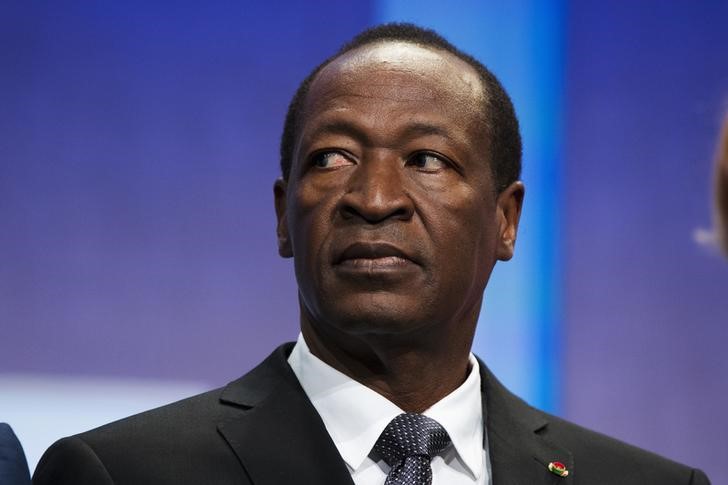By Joe Bavier
ABIDJAN (Reuters) - Burkina Faso's deposed president Blaise Compaore arrived in Ivory Coast on Friday on the latest stage of an odyssey which has taken him to several countries since he was toppled.
Should he seek to stay, his presence could complicate relations between the two West African neighbours and prove politically awkward for the Ivorian government as President Alassane Ouattara seeks re-election next year.
A senior official in the president's office said Compaore, who sought refuge in Ivory Coast immediately after fleeing mass protests in October, had arrived in the capital Yamoussoukro after spending time in Morocco, Gabon and elsewhere.
"He came back here. He's free to go wherever he wants," the official said, adding that it was unclear how long Compaore planned to remain in the country. "The president has already said that he is free to stay as long as he likes. It's up to him."
Ivory Coast's government spokesman Bruno Kone said he could not confirm Compaore's presence in the country.
"I don't know why the question keeps coming up. He is a free individual. He's free to come and go. It's not a question for us," he told Reuters. "He is a friend of Ivory Coast."
Compaore has a close relationship with Ouattara, and was lodged in a state villa when he first arrived after his fall from power.
The Ivorian opposition accuses him of backing pro-Ouattara forces that fought against and defeated former president Laurent Gbagbo in 2011 after he failed to recognise his defeat to Ouattara in an election. With polls due again next year, Compaore's continued presence could therefore prove sensitive.
The possibility that Burkina Faso may seek Compaore's extradition to face trial could also create complications.
"If it happens, I think the authorities will study the situation, but we're not there for the moment," the Ivorian presidency source said.
Burkina Faso's interim Prime Minister Isaac Zida has promised to open enquiries into the suspected involvement of Compaore's government in several high-profile killings, a key demand of the protesters who ended his 27 years in power.

Compaore took power in a 1987 coup in which then-President Thomas Sankara was killed in unexplained circumstances. The interim authorities have said they will exhume a grave thought to contain the remains of Sankara, a revolutionary folk hero in the West African nation.
(Reporting by Joe Bavier; Editing by Mark Trevelyan)